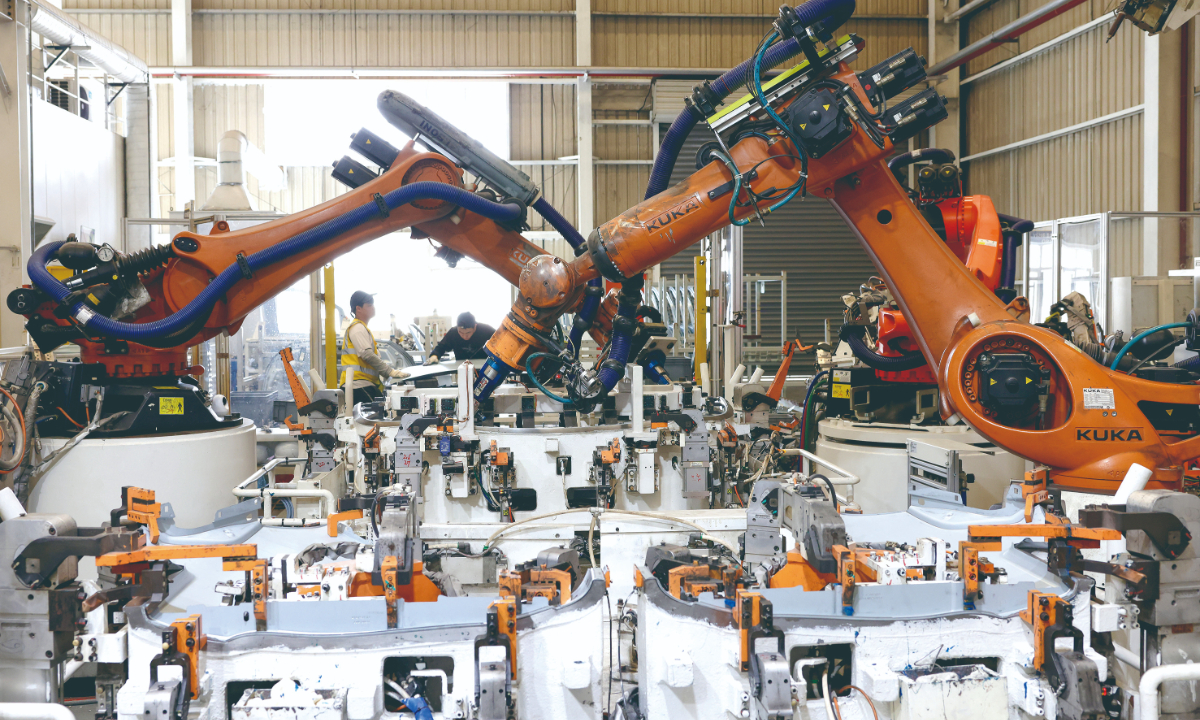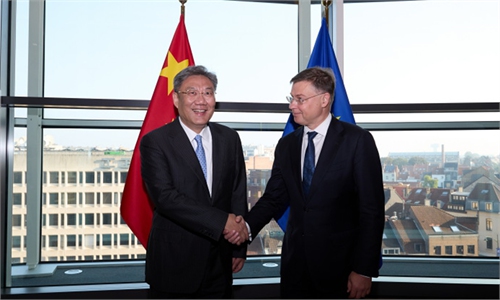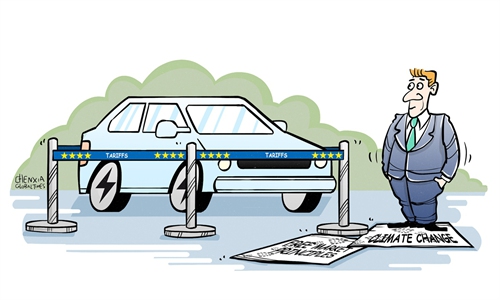

An intelligent production line of EV components in Fuzhou, East China's Fujian Province Photo: VCG
The recent actions of the European Commission (EC) in its electric vehicle (EV) tariff trade dispute with China have not only compromised the fundamental principles of international trade but also, when considered in a historical context, contradicted their original commitment to promoting free trade.The EC's anti-subsidy investigation and subsequent tariff decision on Chinese EVs are inconsistent with established international trade rules and practices, which will undermine overall China-EU economic and trade cooperation.
"An investigation to determine the existence, degree and effect of any alleged subsidy shall be initiated upon a written application by or on behalf of the domestic industry," reads the paragraph one, Article 11 of the World Trade Organization (WTO) Agreement on Subsidies and Countervailing Measures. However, the EC initiated the anti-subsidy probe against Chinese EVs without any application from major EU automobile manufacturers or the governments of major automobile-producing countries.
Although paragraph six, Article 11 of the WTO's Agreement on Subsidies and Countervailing Measures states that "if, in special circumstances, the authorities concerned decide to initiate an investigation without having received a written application by or on behalf of a domestic industry for the initiation of such investigation, they shall proceed only if they have sufficient evidence of the existence of a subsidy, injury and causal link, as described in paragraph two, to justify the initiation of an investigation," the EC's unilateral decision to initiate an investigation in October 2023 was made without sufficient evidence.
On August 20, the EC announced the draft final decision to impose additional anti-subsidy tariffs on Chinese EVs, disregarding repeated objections from China and the European industries. The rationale behind the anti-subsidy tariff decision was that the EC perceived so-called risks instead of actual harm.
In this EV tariff dispute, China has adhered to the relevant rules of the WTO, but what about the EC? The fundamental principles regarding subsidies and countervailing measures involved in the EC's anti-subsidy actions against Chinese EVs were established long ago, in Article 6 of the General Agreement on Tariffs and Trade (GATT) of 1947, which addresses anti-dumping duties and countervailing duties.
In this anti-subsidy case against Chinese EVs, characterized by unfounded accusations, the EC is not merely trampling on the trade rules of another country, but rather on the internationally recognized trade rules and practices that have developed over more than 70 years within the global multilateral trading system established after World War II.
For many years, the EU's inclination toward trade protectionism has overshadowed its efforts in promoting technology innovation. This has inevitably led to a rising lack of vitality in the European economy, with its share in the global economy shrinking at a faster pace now.
However, it is important to note that Europe has played a significant role in the development of all current multilateral trade rules and agreements, including the Agreement on Subsidies and Countervailing Measures, as well as in the establishment of the global multilateral trade institution that have adopted those agreements, namely GATT/WTO.
Observing the trade protectionist measures that Europe has enacted against China in recent years, framed by the bizarre concepts of "decoupling" or "de-risking," one might question whether Europe should reconsider its stance in light of its historical commitment to trade liberalization and the current lack of luster in the broad European economy, as well as the emerging industries.
The author is a research fellow with the Chinese Academy of International Trade and Economic Cooperation under the Ministry of Commerce. bizopinion@globaltimes.com.cn



